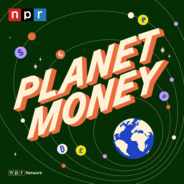Ray and Becky Queen live in rural Oklahoma with their kids (and chickens). The Queens were able to buy that home with a VA loan because of Ray's service in the Army. During COVID, the Queens – like millions of other Americans – needed help from emergency forbearance. They were told they could pause home payments for up to a year and then pick up again making affordable mortgage payments with no problems.That's what happened for most American homeowners who took forbearance. But not for tens of thousands of military veterans like Ray Queen.On today's show, we follow two reporters' journey to figure out what went wrong with the VA's loan forbearance program. How did something meant to help vets keep their houses during COVID end up stranding tens of thousands of them on the brink of foreclosure? And, once the error was spotted, did the government do enough to make things right?Today's episode was produced by James Sneed. It was edited by Meg Cramer. And fact-checked by Dania Suleman. Engineering by Cena Loffredo. Alex Goldmark is Planet Money's executive producer.Help support Planet Money and hear our bonus episodes by subscribing to Planet Money+ in Apple Podcasts or at plus.npr.org/planetmoney.Learn more about sponsor message choices: podcastchoices.com/adchoicesNPR Privacy Policy

Wirtschaft
Planet Money Folgen
Wanna see a trick? Give us any topic and we can tie it back to the economy. At Planet Money, we explore the forces that shape our lives and bring you along for the ride. Don't just understand the economy – understand the world.Wanna go deeper? Subscribe to Planet Money+ and get sponsor-free episodes of Planet Money, The Indicator, and Planet Money Summer School. Plus access to bonus content. It's a new way to support the show you love. Learn more at plus.npr.org/planetmoney
Folgen von Planet Money
355 Folgen
-
Folge vom 01.11.2024The veteran loan calamity
-
Folge vom 31.10.2024So your data was stolen in a data breachIf you... exist in the world, it's likely that you have gotten a letter or email at some point informing you that your data was stolen. This happened recently to potentially hundreds of millions of people in a hack that targeted companies like Ticketmaster, AT&T, Advance Auto Parts and others that use the data cloud company Snowflake.On today's show, we try to figure out where that stolen data ended up, how worried we should be about it, and what we're supposed to do when bad actors take our personal and private information. And: How our information is being bought, sold, and stolen.This episode was hosted by Amanda Aronczyk and Keith Romer. It was produced by Sam Yellowhorse Kesler and edited by Meg Cramer. It was engineered by Ko Takasugi-Czernowin with an assist from Kwesi Lee, and fact-checked by Dania Suleman. Alex Goldmark is Planet Money's executive producer.Help support Planet Money and hear our bonus episodes by subscribing to Planet Money+ in Apple Podcasts or at plus.npr.org/planetmoney.Learn more about sponsor message choices: podcastchoices.com/adchoicesNPR Privacy Policy
-
Folge vom 25.10.2024Why do hospitals keep running out of generic drugs?There's something strange going on in hospitals. Cheap, common drugs that nurses use every day seem to be constantly hit by shortages. These are often generic drugs that don't seem super complicated to make, things like dextrose and saline (aka sugar water and salt water).So what's going on? The answer, as with anything in healthcare, is complicated.On today's show: why hospitals keep running out of generic drugs. The story behind these shortages tells us a lot about how these drugs are made, bought and sold–and, it shows us how these markets can falter without the proper care.This episode was hosted by Sally Helm and Alexi Horowitz-Ghazi. It was produced by Willa Rubin, with help from James Sneed and Sam Yellowhorse Kesler. It was edited by Martina Castro. Fact-checking by Dania Suleman. Planet Money's executive producer is Alex Goldmark.Help support Planet Money and hear our bonus episodes by subscribing to Planet Money+ in Apple Podcasts or at plus.npr.org/planetmoney.Learn more about sponsor message choices: podcastchoices.com/adchoicesNPR Privacy Policy
-
Folge vom 23.10.2024Romance on the screen and on the page: Two IndicatorsOn today's show, we have two stories from The Indicator, Planet Money's daily podcast. They just launched Love Week, a weeklong series exploring the business and economic side of romance.First, hosts Wailin Wong and Adrian Ma fire up the gas logs and pour a mug of cocoa to discuss the made-for-TV rom-com machine, and how television executives learned to mass produce seasonal romance.Then, Wailin and host Darian Woods discuss another romance medium: the romance novel. Once relegated to supermarket aisles, these books are now mainstream. And authors, an often-maligned group within publishing, have found greater commercial success than many writers in other genres. We find out how romance novelists rode the e-book wave and networked with each other to achieve their happily-for-now status in the industry.This episode is hosted by Erika Beras, Wailin Wong, Adrian Ma, and Darian Woods. These episodes of The Indicator were originally produced by Julia Ritchey and engineered by Kwesi Lee. They were fact-checked by Sierra Juarez. Kate Concannon is The Indicator's Editor.You can listen to the rest of the series at The Indicator's feed, or at npr.org/loveHelp support Planet Money and hear our bonus episodes by subscribing to Planet Money+ in Apple Podcasts or at plus.npr.org/planetmoney.Learn more about sponsor message choices: podcastchoices.com/adchoicesNPR Privacy Policy
